Pakistan promises to ‘avenge each drop of blood’ after Indian air strikes, misinformation spreads online
India’s air strikes against targets in Pakistan have sparked fears of an all-out war - and a wave of dangerous misinformation.
India’s air strikes against targets in Pakistan and Kashmir yesterday have sparked fears that a full-scale war could break out between two of the world’s nuclear powers.
The attacks have also unleashed a torrent of fast-spreading misinformation online.
BBC Verify, the British broadcaster’s fact-checking operation, reports that videos entirely unrelated to the strikes, but purporting to show them, are being widely shared, racking up millions of views in the process.
One such clip, for example, actually showed Israeli strikes in Gaza from October of 2023, but was being presented as footage of an Indian attack in Pakistani-administered Kashmir. In mere hours it had been viewed more than three million times.
Another video, supposedly showing Pakistan destroying “the Indian Brigade headquarters”, was first uploaded to YouTube more than a month ago, in early April. That one was retweeted 2000 times and liked 10,000 times.
A third viral clip, attributed to a retributive strike from Pakistan, was actually from the 2020 explosion at Beirut Port in Lebanon.
In a slightly more embarrassing instance, a Twitter user claimed to be sharing screengrabs of the Pakistani air force targeting Indian bases. The images in question were, in fact, taken from the video game Battlefield 3.
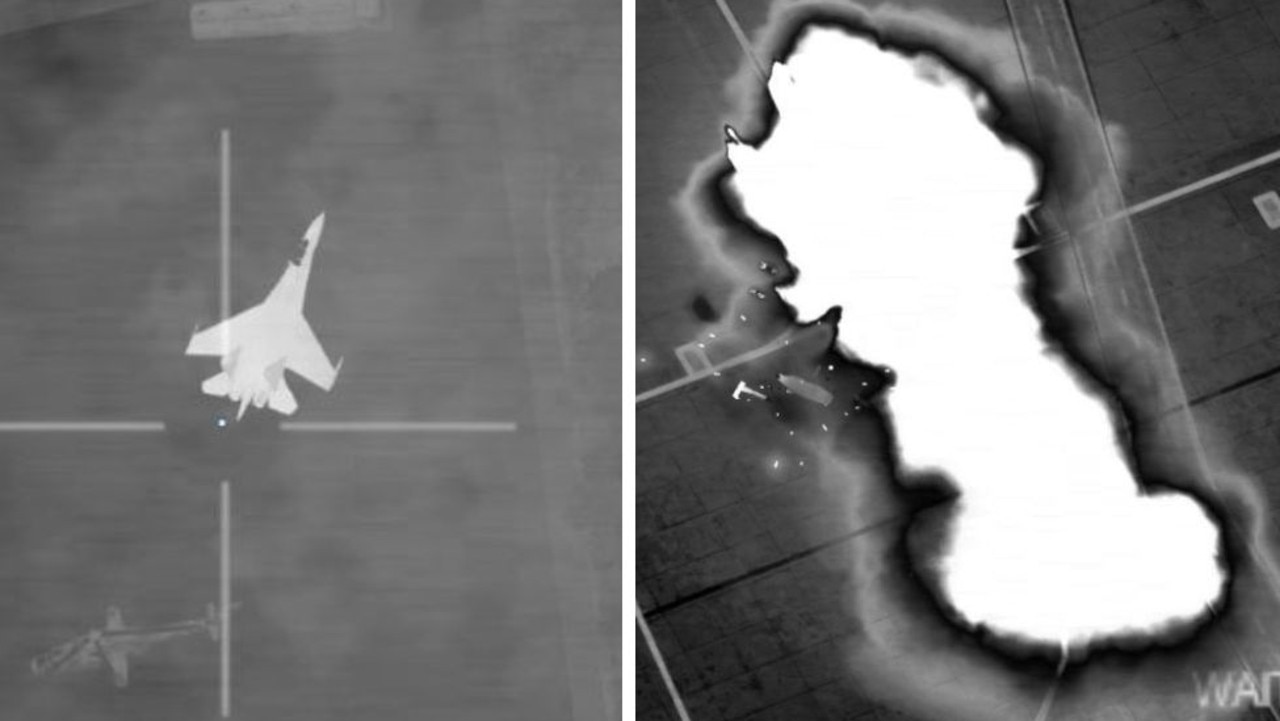
In fairness to Twitter, many of the misleading posts have been flagged and debunked by its community notes system.
Professor Indrajit Roy, from the department of politics and international relations at York University, told BBC Verify many of the images were being shared with the goal of drumming up support for Pakistan.
“We have jingoists on both sides of the border, and they have a huge platform on Twitter,” Prof Roy said.
“You can see how fake news, as well as some real news, gets amplified, distorted, presented in ways designed to generate hostility, animosity and hatred for the other side.”
Eliot Higgins, founder of the Netherlands-based investigative journalism outfit Bellingcat, stressed that “it’s very common to see recycled footage” online.
“Algorithmic engagement rewards people who post engaging content, not truthful content. And footage of conflict and disasters is particularly engaging, no matter the truth,” he said.
‘Each drop of blood’
Meanwhile, the Prime Minister of Pakistan has promised to “avenge each drop of blood” spilt as a consequence of India’s air strikes, in a chilling indication that tensions between the two nuclear powers are likely to keep escalating.
India said Wednesday’s missile strikes were launched in response to a terrorist attack by Islamist militants in the Indian-administered part of Kashmir.
That attack on April 22, in the town Pahalgam, targeted Hindu tourists. The perpetrators killed 26 people, 25 of whom were Indian. Pakistan has denied any connection to it.
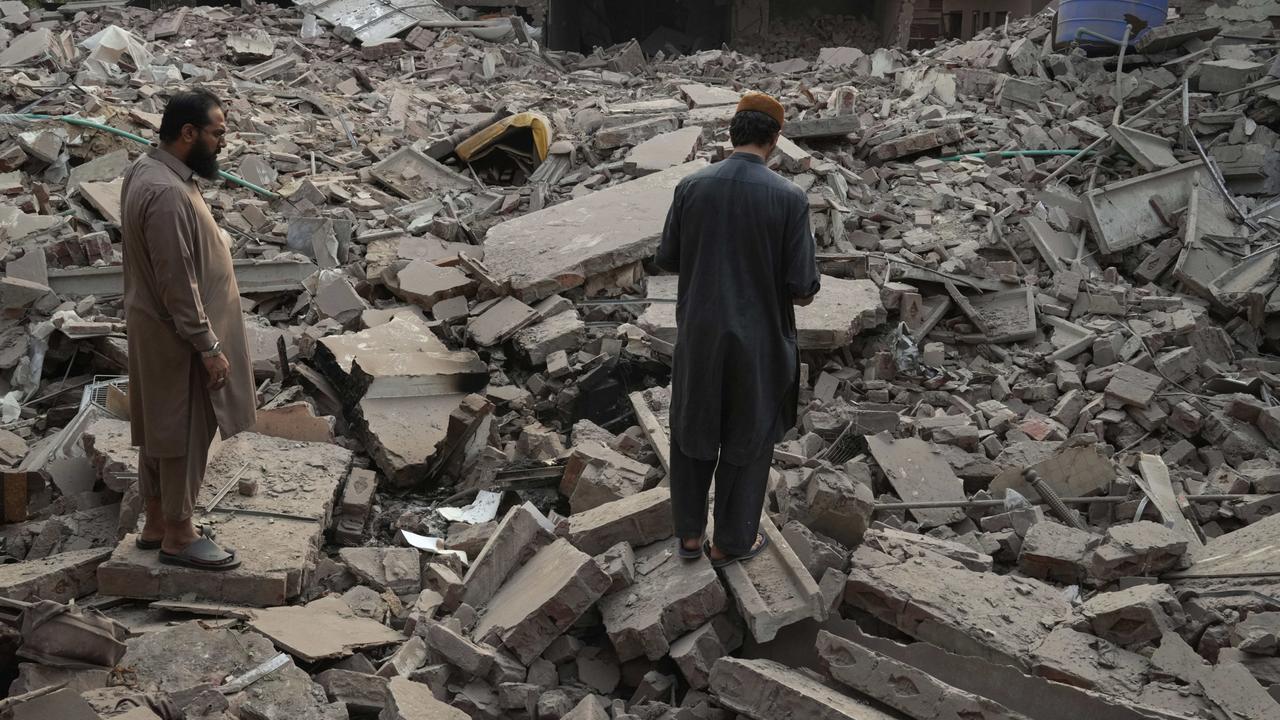
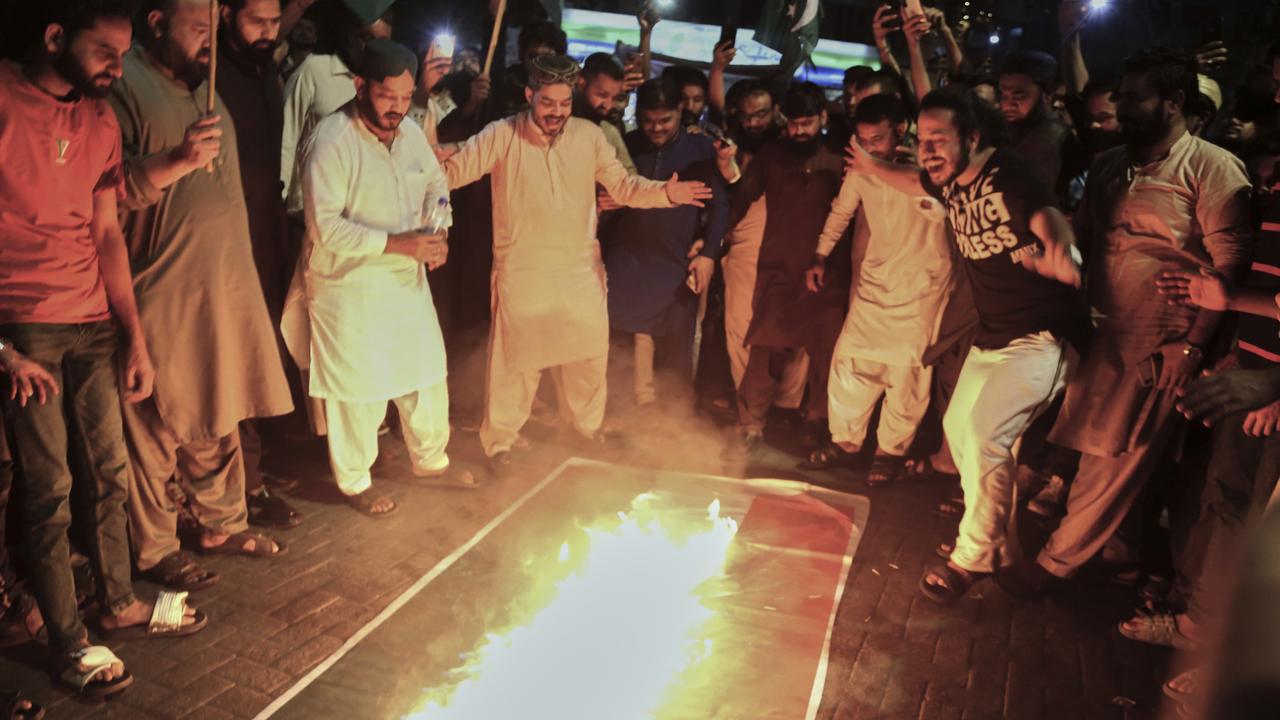
Nevertheless, the Indian military launched “Operation Sindoor” on Wednesday to, in its words, hold “accountable” those responsible for the “barbaric” attack, specifically the terrorist groups Lashkar-e-Tayyiba and Jaish-e-Mohammed.
It targeted multiple sites in the Pakistani-administered part of Kashmir, as well as inside Pakistan itself. The death toll currently stands at 43, and according to Pakistan, 31 of those victims were civilians.
India says 12 people have been killed, in turn, by Pakistani shelling. And Pakistan claims to have shot down five Indian jets.
“Our actions have been focused, measured and non-escalatory in nature,” India claimed in an initial statement about the strikes.
“No Pakistani military facilities have been targeted. India has demonstrated considerable restraint in the selection of targets and method of execution.”
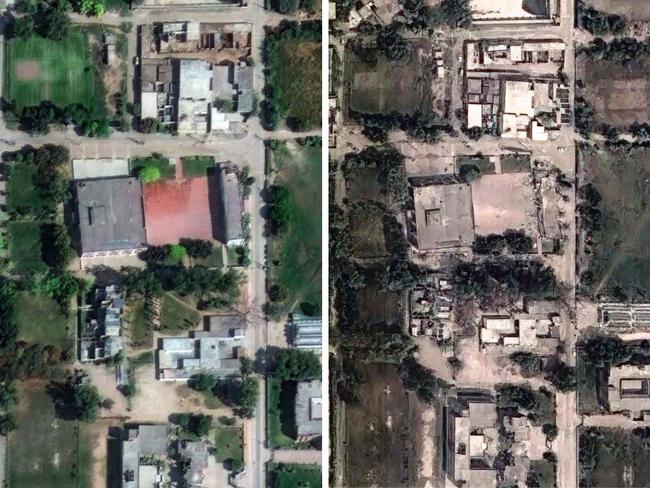
The military said it had targeted “terrorist infrastructure from where terrorist attacks against India have been planned and directed”.
But Pakistan called the strikes “unprovoked” and “a heinous act of aggression”, pledging that they would “not go unpunished”.
There have been several such comments, from various government officials, in the last 24 hours. During an address to the nation late on Wednesday, Pakistani Prime Minister Shehbaz Sharif committed to seeking retribution.
“We make this pledge: that we will avenge each drop of the blood of these martyrs,” he said.
Deputy Prime Minister and Foreign Minister Ishaq Dar told The Guardian it was “too premature” to discuss specific retaliatory measures publicly, but Pakistan would be willing to go to “any extent” to protect itself.
“Yes, there is a huge economic loss attached to any full-fledged war,” he conceded.
“But when the question is of sovereignty, integrity of the country, territorial integrity, the dignity of the nation, then there is no price.”
Defence Minister Khawaja Muhammad Asif warned it “won’t take long to settle the score”, though he said Pakistan would hit only military targets inside India, avoiding civilians.
And a spokesman for the military, Ahmed Sharif Chaudhry, said the armed forces had been “authorised” to “respond in self-defence at a time, place and manner” of their choosing.
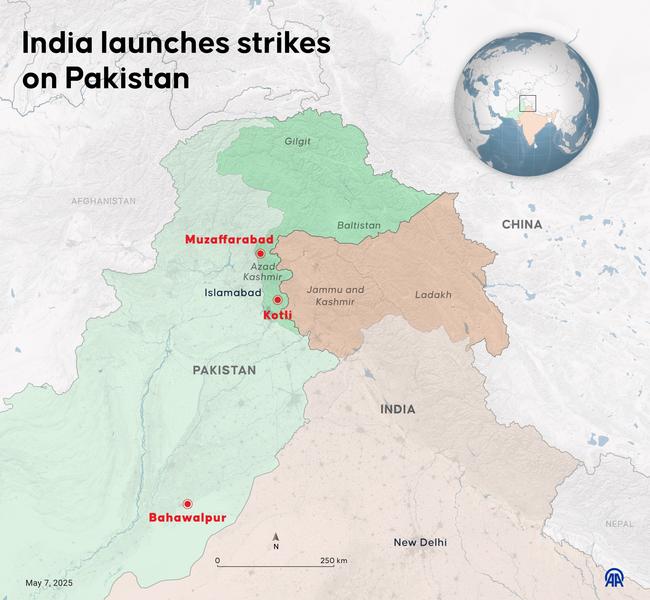
World urges both nations to ‘stop’
The international community is frantically trying to de-escalate the situation.
US President Donald Trump spoke to reporters at the White House today after a swearing in event for America’s new ambassador to China, David Purdue.
“My position is I get along with both,” he said of Pakistan and India.
“I know both very well, and I want to see them work it out. I want to see them stop, and hopefully they can stop now.
“They’ve gone tit-for-tat, so hopefully they can stop now. But I know both. We get along with both the countries very well, good relationships with both, and I want to see it stop.
“And if I can do anything to help, I will be there.”
A spokesman for United Nations Secretary-General Antonio Guterres stressed that “the world cannot afford a military confrontation between India and Pakistan”.
Mr Guterres is calling for “maximum military restraint” from both parties.
The British government is also urging India and Pakistan to “show restraint”, and to “engage in direct dialogue to find a swift, diplomatic path forward”.
“I have made clear to my counterparts in India and Pakistan that if this escalates further, nobody wins,” said Foreign Secretary David Lammy.
“We understand India’s desire to protect itself against the scourge of terrorism,” said French Foreign Minister Jean-Noel Barrot.
“But we obviously call on both India and Pakistan to exercise restraint, to avoid escalation and, of course, to protect civilians.”
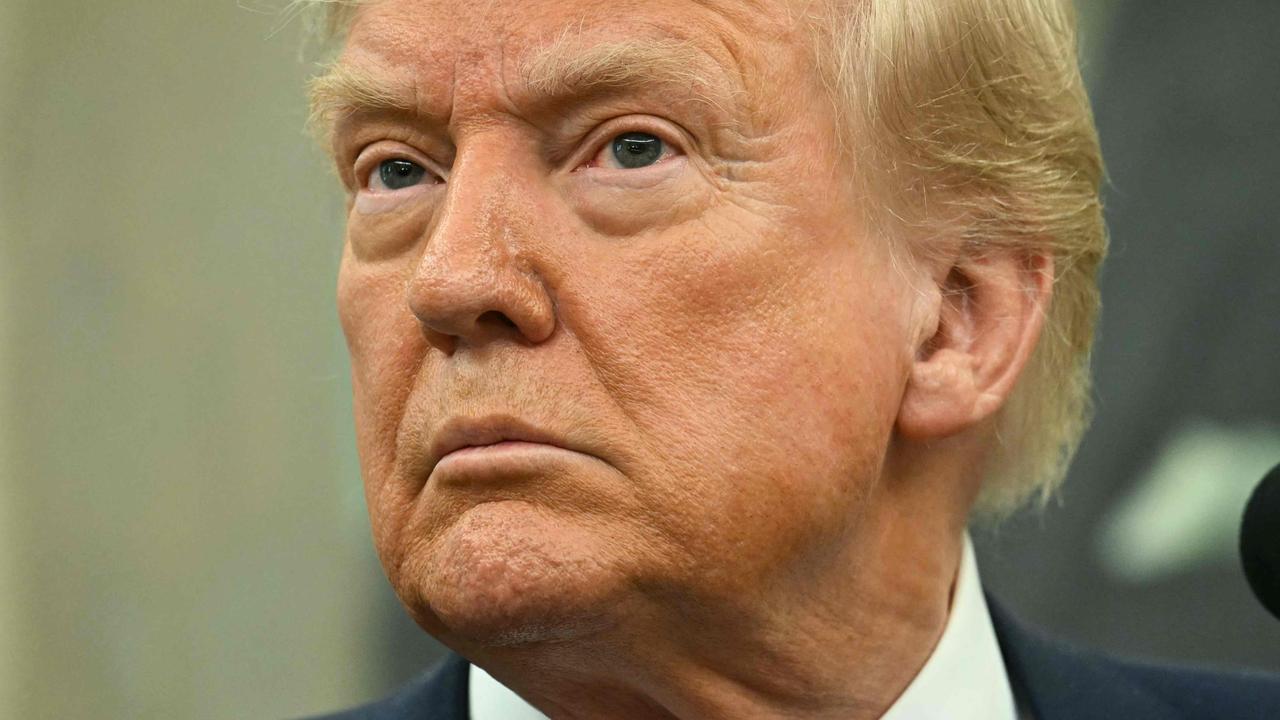
‘Panic among everyone’
Pakistan and India have exchanged heavy artillery fire along the Line of Control that divides Kashmir, which both countries claim in full but administer separately.
The nations have fought two full-scale wars over the divided territory since they were carved out of the subcontinent after gaining independence from British rule in 1947.
Residents have spoken of the terror these latest strikes caused.
“There were terrible sounds during the night, there was panic among everyone,” said Muhammad Salman, who lives close to a mosque in Pakistan-administered Kashmir that was hit by an Indian strike.
“We are moving to a safer place. We are homeless now,” added 24-year-old Tariq Mir, who was hit in the leg by shrapnel.
On Wednesday night, the Pakistani military spokesman said firing was “ongoing” at the Line of Control.
The largest Indian strike was on an Islamic seminary near the Punjab city Bahawalpur, which killed 13 people, according to the Pakistan military.
A government health and education complex in Muridke, 30 kilometres from Lahore, was blown apart, along with the mosque in Muzaffarabad, the main city of Pakistan-administered Kashmir. That strike killed the mosque’s caretaker.
Four children were among those killed.
– with AFP




